Did you miss a webinar or lecture? We record many of them so you can watch them anytime.
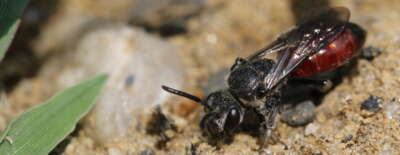
Vermont's Wild Bees: Past, Present, and Future
October 05, 2023VCE's bee biologist Spencer Hardy bees and bee conservation in Vermont. Brought to you by the Community Senior Center of Richmond, Bolton, and Huntington. Recorded by MMCTV. Watch the recording »
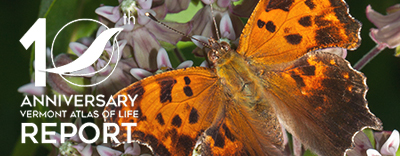
Webinar: 10th Anniversary VAL Report
June 14, 2023By 2100, Vermont is estimated to experience a net loss of 386 species (or 6%), under the current carbon emission scenario. This comes among several key findings outlined in a new report. It marks the 10th Anniversary of the Vermont Atlas of Life, an ambitious project that harnesses the power of community science and professional biologists to discover, document, and map Vermont’s biodiversity.The report uses nearly 8 million observations from almost 12,000 species reported from across the state to help establish a biodiversity baseline for Vermont. As the researchers explain, this baseline is critical for understanding and measuring future biodiversity changes caused by landscape alteration, climate change and other environmental perturbations. Join our webinar on Wednesday, June 14 at 10AM to learn more from Dr. Michael Hallworth, data scientists and lead author. Watch recording »
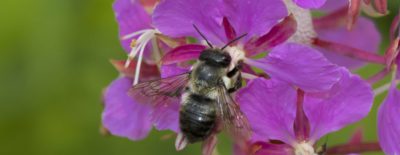
Naturalist Journeys: The Bees of Vermont
March 08, 2023Four years ago, no one knew how many species of bees were in Vermont. After combing fields, forests, and museum collections around the state, we now know there are more than 350 species of bees in Vermont. The new State of Vermont’s Bees provides the first detailed look at the status and needs of these important pollinators. Included in this presentation is advice and suggestions for improving the habitat in your community. Part of North Branch Nature Center's Naturalists Journeys lecture series. Watch the recording »
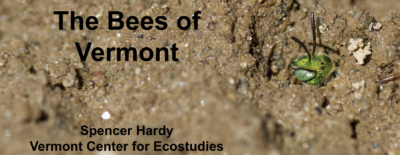
Mascoma Chapter of NH Audubon Lecture: Vermont Wild Bee Survey
In the inaugural talk of 2023, the Mascoma Chapter of NH Audubon hosted Norwich native, and Hanover HS alum, Spencer Hardy to speak about his recent work coordinating the Vermont Wild Bee Survey. Spencer's talk covered the results of last year's Wild Bee Survey as well as an overview of the diversity found among the more than 350 bee species recorded in our region. He also talked about the challenges facing our wild bee population and what individuals can do to mitigate some of the many threats. Watch the recording »
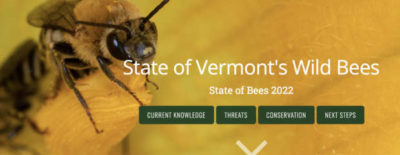
Webinar: State of Vermont's Wild Bees Report
Watch our webinar from Thursday, November 17 about the wild bee species in Vermont. Over 350 wild bee species call Vermont home, but 55 of those species urgently need conservation action. A new report from the Vermont Center for Ecostudies (VCE), in collaboration with the Vermont Fish & Wildlife Department (VFWD), provides the first comprehensive assessment of Vermont’s bees. The Vermont State of Bees report, released today by biologists working on VCE’s Vermont Atlas of Life, was created using more than 55,000 observations of bees from hundreds of community scientists and biologists across the state. Watch the Webinar »
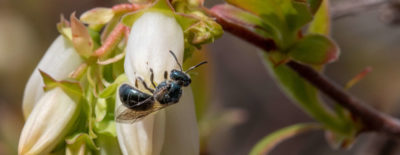
Beyond the Honeybee: Wild Bees on the Vermont Landscape
March 24, 2022Hosted by the Friends of Missisquoi National Wildlife Refuge. Spencer Hardy, VCE's bee expert, shares discoveries and photos from three years of surveys around the state, including extensive work at Missisquoi National Wildlife Refuge. He also discusses ways you can help the native bees in your own yard and surrounding community. Watch the recording »
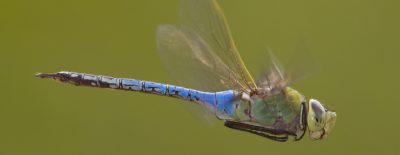
Common Green Darner Flight Watch
Interested in learning about the phenology of Common Green Darners (Anax junius), one of America's largest dragonflies? Curious about how you can participate in our journey to discover how climate change may influence their migratory patterns? This is the recording for you! Watch the recording »
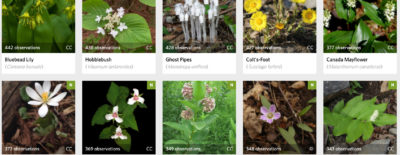
Mission Identify - webinar and video series
Learning to identify unfamiliar species is often a daunting task, and can feel more manageable when you have a whole community of naturalists in your pocket (on iNaturalist!). Identifications on iNaturalist and eButterfly are entirely crowd-sourced, coming from users such as yourself! These identifications are both valuable for the growth of each naturalist and for researchers who utilize the occurrence data from iNaturalist/ eButterfly. The Mission Identify webinar recording provides an overview of the Identify feature on iNatualist and eButterfly, along introductions to the identtification of butterflies, beetles, herbaceous plants, trees, and amphibians. Since we had too much information to cram into one presentation, this showcase also contains full ID videos (each between 15 and 30 minutes) on the aforementioned taxa. Watch Recordings »
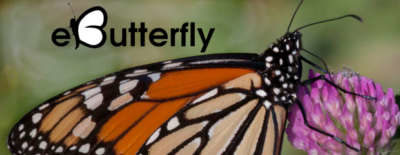
Learn How to use eButterfly!
March 30, 2021Every time butterfly watchers raise binoculars and cameras to record a butterfly sighting, they collect important data. Recording the number, date, and location of each and every butterfly, no matter how common or rare, can be invaluable to science and conservation. eButterfly is the tool for any butterfly enthusiast. You don’t have to be an expert to make a difference. Everyone can play a part, and it couldn’t be easier. Just login to eButterfly and contribute your butterfly discoveries! Watch the Webinar »
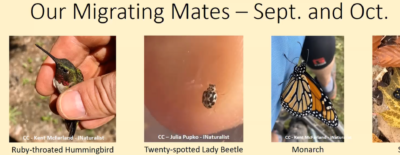
Lunchtime Learning Webinar Series
VCE's Community Science Outreach Naturalist, Julia Pupko, hosts a Lunchtime Learning session each Wednesday! Over the course of the hour, Julia gives a short lesson on how to use an aspect of iNaturalist through the lens of a seasonally-relevant Vermont natural history topic. Each webinar is recorded and posted to VCE's Vimeo (see link below). To tune in, check out our events page. View recorded webinars »
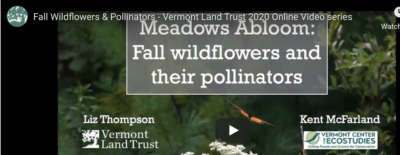
Meadows Abloom: Fall Wildflowers and Their Pollinators
September 10, 2020In late summer and early fall meadows come alive with wildflowers and insects. From the graceful pink Joe Pye Weed that blooms in mid-August to New England Aster, one of the last spectacles of the year, there is so much to see and enjoy in the fields near your home—maybe even right in your own backyard. In this webinar Liz Thompson, Director of Conservation Science for the Vermont Land Trust, and Kent McFarland, Conservation Biologist with the Vermont Center for Ecostudies, take viewers on a tour of a meadow in Jericho, Vermont. They focus in on the aster family and many pollinator species. After their presentation, viewers asked questions for 45 minutes (!) — we’ve left that in the video. Watch the webinar »
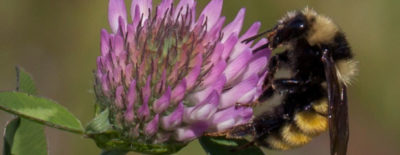
Bumble Bee Natural History and Conservation in Vermont
July 29, 2020VCE conservation biologist Kent McFarland presents the natural history and conservation status of the bumble bee species known to Vermont, highlighting results of the Vermont Bumble Bee Atlas, in this introductory lecture for the Salisbury, VT Conservation Commission. (Length: 1h 21m) Watch it on VCE's Vimeo channel »
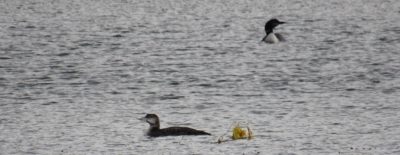
Loon Behavior and Rescues
May 20, 2020Eric Hanson will present a webinar focused on the behavior of loons. Loons are unique in that we can watch these interactions during every daylight hour. I will go over results of 25 years of banding research in Wisconsin by Dr. Walter Piper detailing what is happening during loon territorial interactions, when and where chicks return to, and other stories. In addition, I’ll share some rescue stories, some successful, some not, but always interesting. Watch the recording »
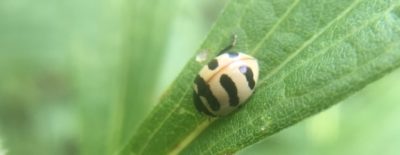
Brown Bag Lady Beetle Discussion
May 15, 2020During this lunchtime chat, Kent and Emily will discuss the current state of Vermont’s lady beetle species and explain why we need citizen scientists to help us find them. They will also briefly demonstrate how to add lady beetle sightings to the Vermont Lady Beetle Atlas on iNaturalist. Watch the recording »
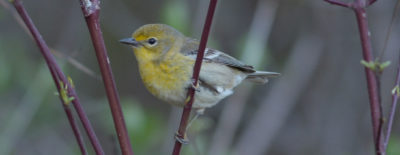
All About Spring Migration
May 13, 2020Spring is an exhilarating time for naturalists, and especially for birders as our forests, fields and waterways fill with the sounds and colors of migrants. Join VCE Executive Director Chris Rimmer for a spring migration discussion! This webinar will provide an overview of spring migration, focusing on the songbirds (thrushes, warblers, orioles, tanagers, and sparrows) that grace us in May. Some are here to nest, while others merely pass through en route to boreal habitats further north. Emphasis will be on the dazzling diversity of different species, their migration strategies, and how to learn their identification. Watch the recording »
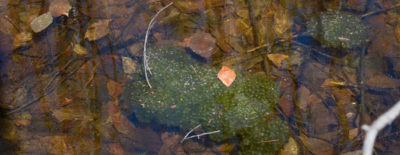
Vernal Pools: Wicked Big Puddles or Critical Wildlife Habitat
May 06, 2020Join VCE’s Steve Faccio for a vernal pool discussion! This webinar will focus on the ecology of vernal pools with an emphasis on the wildlife (both amphibians and invertebrates) that depend upon them to complete their life cycles. We will explore the characteristics of vernal pools and learn why ecologists consider them to be “keystone ecosystems.” The webinar will also feature a demonstration of VCE’s new Vermont Vernal Pool Atlas, an online database and interactive mapping tool for vernal pools in Vermont. Due to an issue that arose with Google's recording feature, the audio for this recording starts abruptly. Watch the recording »
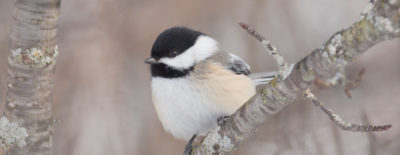
Backyard Birding with eBird
April 22, 2020Are you eagerly awaiting the return of Ruby-throated Hummingbirds to your feeder? Listening for the loon calls to return to your local lake? Noticing the abundance of spring migrants arriving in your neighborhood? Birding close-to-home is a great way to engage with nature and provide valuable citizen science documentation through Vermont eBird, a project of the Vermont Atlas of Life. Join VCE data technician and avid birder Nathaniel Sharp for a walkthrough of Vermont eBird with a focus on backyard birding on Wednesday, April 22nd at 9am. Feel free to come with questions on eBird or birding in general! Watch the recording. »
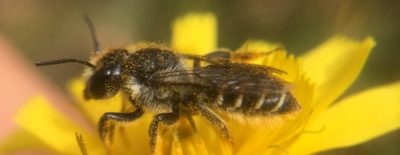
Bee Conservation in Vermont
April 15, 2020Do you have questions about Vermont’s bee populations? Then join us for a bee discussion! First, watch Spencer Hardy's most recent talk on bee conservation in Vermont and keep track of your questions. Then, join Spencer Thursday (4/16) morning at 9am for a Q&A session to have your questions answered. Sip coffee, discuss bees, and learn more about these important pollinators! Watch the recording. »
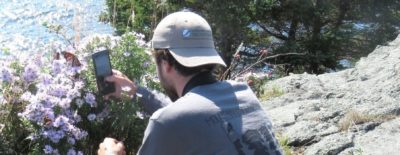
Becoming a Citizen Scientist with iNaturalist
April 08, 2020Looking for an excuse to step outside and explore the nature found in your backyard? Then give iNaturalist a try! iNaturalist is a crowd-sourced identification tool powered by A.I. that helps you identify the plants, animals, and fungi that share your neighborhood. Tune in on Wednesday, April 8th at 9am to learn all about using iNaturalist. Watch the recording. »






